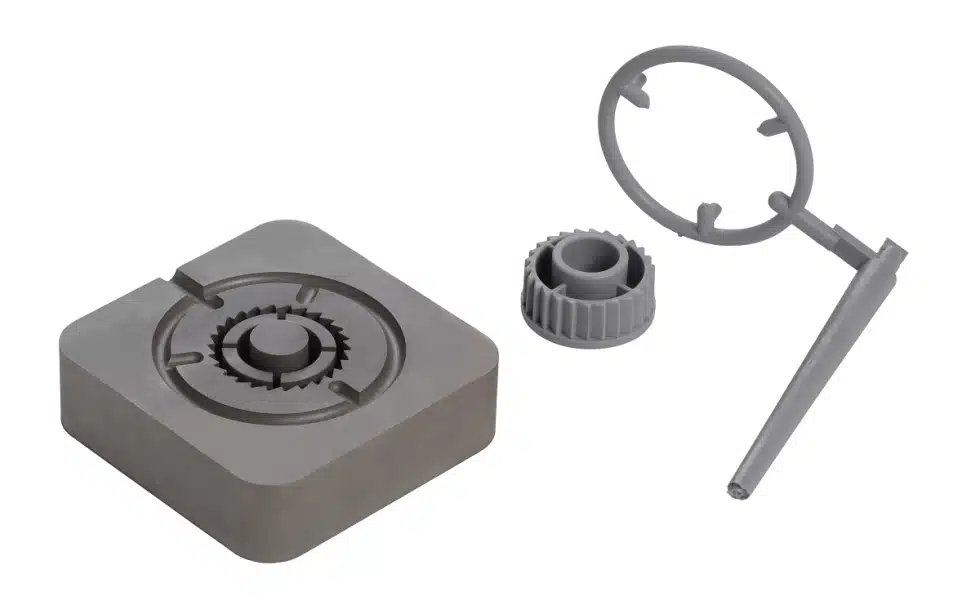

A global medical device manufacturer sought a solution to significantly reduce the time to prototype parts made with high-temperature plastic. Using Mantle’s TrueShape™ technology and P2X (P20 comparable) material, cavity and core tool-steel mold inserts were 3D printed in just over 2.5 days. Then, after another 5.5 days of mold and insert preparation, the tool was ready for molding.
Compared to a fabrication time of 7 weeks using traditional manufacturing, Mantle’s process resulted in more than 80% of time savings. The printed inserts demonstrated equivalent molding performance to conventionally manufactured inserts. Additionally, the molding surfaces had high tolerance and a smooth surface finish, so no additional work to the mold surfaces was required before use.

The medical device industry’s unique requirements make new product introductions time-consuming and complicated. For many medical parts, the production materials must be used throughout prototyping and testing to ensure safety and performance. This requirement means that 3D-printed plastic parts can only be used for fit and feel during the design phase. Prototypes generally need to be made with production materials, requiring durable injection mold tooling.
While 3D printed plastic mold inserts can be used to mold prototype plastic parts, their insulating properties and surface finish limitations mean the prototype tooling process and molded parts deviate from the design and the final production parts. Furthermore, these tools only survive a limited number of molding cycles and generally cannot withstand the challenging processing requirements of advanced plastics such as Radel® polyphenyl sulfone (PPSU) and acetal, which were required for this application.
A set of cavity and core mold inserts were printed using Mantle’s TrueShape™ technology and P2X material. The inserts were printed in 40 hours and sintered in 24 hours, with a total production time of 64 hours. The finished insert achieved tight dimensional tolerances and had a smooth matte surface finish similar to that found on parts after Electric Discharge Machining (EDM). Before being installed into the molding press, approximately 24 hours of operator/machine time was used to add ejector pin holes, tap mounting holes, and fit and install the inserts into a mold base. No surface finishing was needed on the molding surfaces prior to use.
Once installed in the molding machine, parts were produced using Radel polyphenyl sulfone (PPSU) at a mold temperature over 600° F and acetal at a mold temperature of over 390° F. Both materials require high molding pressures. The resulting parts passed all visual and dimensional requirements.

The trial results were favorable across all critical evaluation criteria, including part quality, lead time, and cost. The printed inserts had tight tolerances within 0.001,” and the resulting surface finish was 63 μin Ra (1.6 μm Ra), which produced high-quality matte prototypes with no surface finishing needed. Compared to traditional manufacturing, Mantle’s process resulted in mold-ready production-grade tooling in 8 days compared to a standard 7-week lead time, a reduction of over 80 percent. The manufacturer also reduced costs by over 50%.
Mantle 3D Systems, LLC
1950 Cesar Chavez St.
San Francisco, CA 94124
415.655.3555